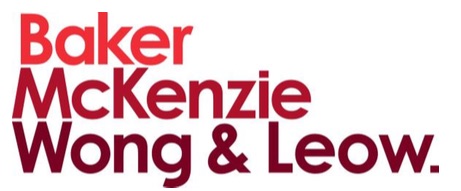24 December, 2018
The Monetary Authority of Singapore (MAS) issued an updated Guide to Digital Token Offerings (Guide) on 30 November 2018 to enhance its guidance in relation to the regulation of digital tokens. This includes how the proposed payments regulations would affect digital tokens providers and issuers given the first reading of the Payment Services Bill (PSB) in Parliament the week before as well as the criteria for applying for the regulatory sandbox for digital tokens. A copy of the updated Guide can be found here.
Key takeaway points from the Guide are as follows:
More Case Studies. The MAS has expanded and provided 11 detailed case studies describing the various business models and activities in the digital tokens space and how the relevant regulations would apply in such scenarios. Notably, the MAS has confirmed that there may be certain limited scenarios where the licensing may not be triggered. Where the token does not have any rights or functions attached, is not a medium of exchange or is not accepted for payment for goods or services for the discharge of a debt, it may not be regulated as digital payment token under the PSB either. In one example the MAS discussed a US issuer offering tokens governed by a SAFT which are investment contracts under the US Howey Test. The MAS outlined that the treatment of a token under the Howey Test is not a consideration for deciding whether a token is a product regulated under the Singapore Securities and Futures Act (SFA) and where such tokens are offered to Singapore persons, irrespective of the US position, the issuer must assess whether the offer complies with securities laws administered by the MAS.
Get Advice. If the structure of your proposed digital token or proposed business model is similar to as described in the case studies, there is no need to approach the MAS. This means that if based on the case studies, no licensing is required, the MAS does not need you to write in specifically to confirm this. However, the Guide provides that you should seek independent legal advice from a Singapore-qualified lawyer who is familiar with MAS-administered laws.
Sandbox for Digital Tokens. If it is clear that a license is required for your business and/or activities, then similarly, you should apply for the relevant licence from the MAS. That said, if your firm intends to seek relaxation of specific legal and/or regulatory requirements prescribed by the MAS, applies technology in an innovative way and can meet the relevant evaluation criteria for a FinTech Regulatory Sandbox, then you may apply for the regulatory sandbox. Do note however that the MAS would expect at least due diligence has been done, e.g. testing the proposed financial service within a laboratory environment and for the applicant to have an understanding and knowledge of the legal and regulatory requirements for deploying the proposed financial service. Therefore, if you're looking at an ICO in order to come up with a prototype, it is likely to be too premature to apply for the sandbox at that stage. We expect it to be more suitable for applicants at beta version and above in order to meaningfully experiment within the sandbox.
Enquiries for MAS. If the structure of your proposed digital token or proposed business model is not similar to as described in the case studies and you have obtained legal advice, you may write into the MAS to clarify whether the digital token offering is subject to the MAS' regulations. However, the MAS has set out a prescribed list of information you would need to submit, including, among others, a legal opinion in relation to your business and the offering and a description of your AML/CFT policies, if any.
This clarification from the MAS also comes a week or so after the Singapore Exchange's regulatory branch, SGXRegCo, published in a regulator's column what the SGX expects of listed companies seeking to conduct an ICO. Among others, they would be expected to consult SGXRegCo in advance of the issuance, disclose a legal opinion on the nature of the tokens as well as an auditor's opinion on the ICO's accounting treatment, both of which need to be from reputable professional firms. SGX indicated that it prescribe a checklist of additional compliance matters to be addressed by the listed issuer. At issuance, SGX would require additional disclosures to be made to shareholders in relation to the funding (e.g. on the use of funds raised and key milestones achieved in utilizing the funds, accounting and valuation treatments of the funds, financial impact on the issuer as a result of the token issuance as well as impact of any contingent settlement provisions, impact on existing shareholders' rights among others). There will also be ongoing disclosure requirements post-ICO, and the foregoing applies even if the digital tokens issued are not "securities" or "capital markets products" under the SFA.
Overall, these regulatory pronouncements codify current market practice in Singapore and are welcomed especially when the uncertainty of regulations plagues the crypto sector elsewhere. Although Singapore has not gone down the route of regulating digital tokens under a specific standalone framework, SGXRegCo's announcement of additional requirements for SGX-listed issuers for instance, is an endorsement of ICO issuances by SGX-listed issuers, albeit within a clear and predefined framework to address the risks involved.
For further information, please contact:
Stephanie Magnus, Principal, Baker & McKenzie.Wong & Leow
stephanie.magnus@bakermckenzie.com

.jpg)





